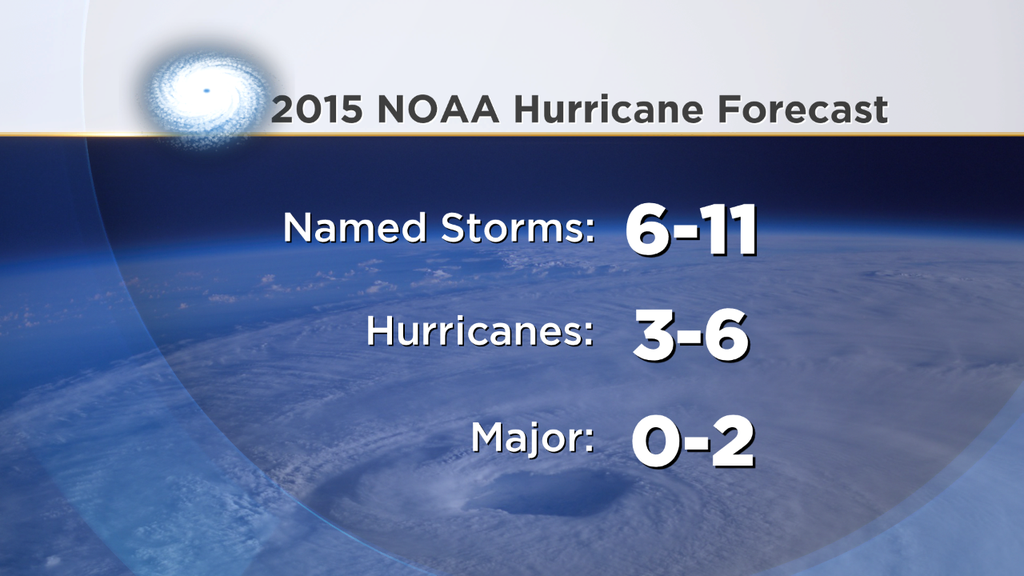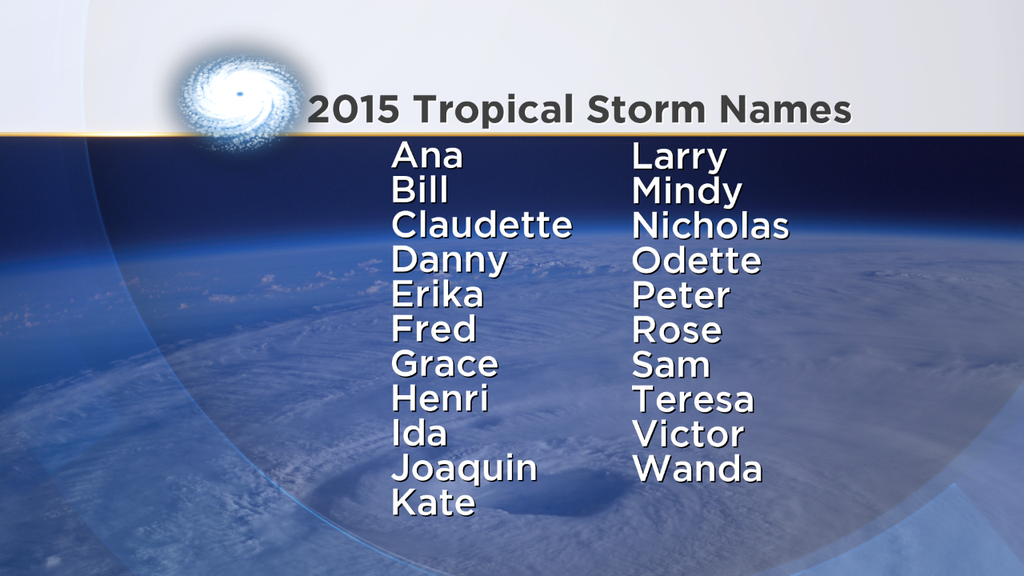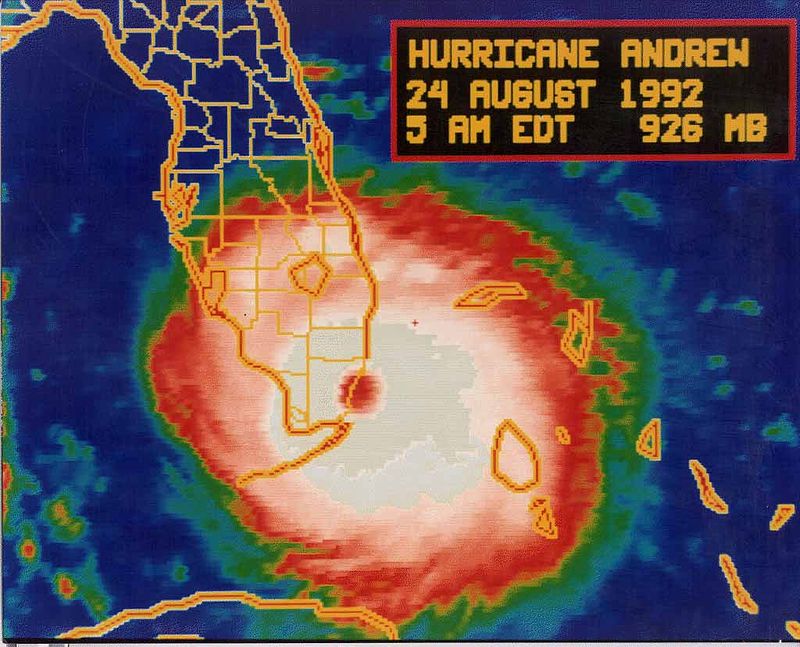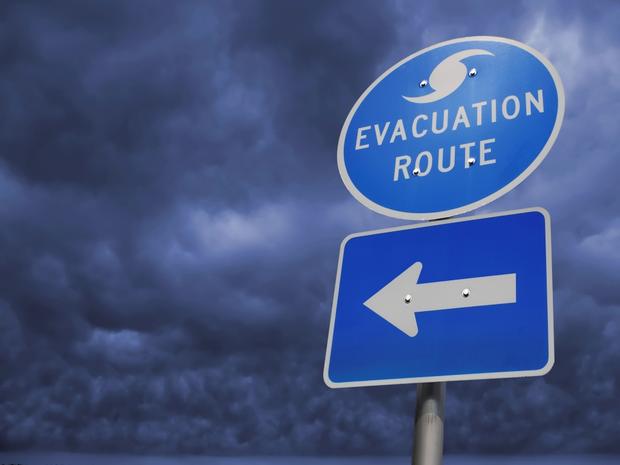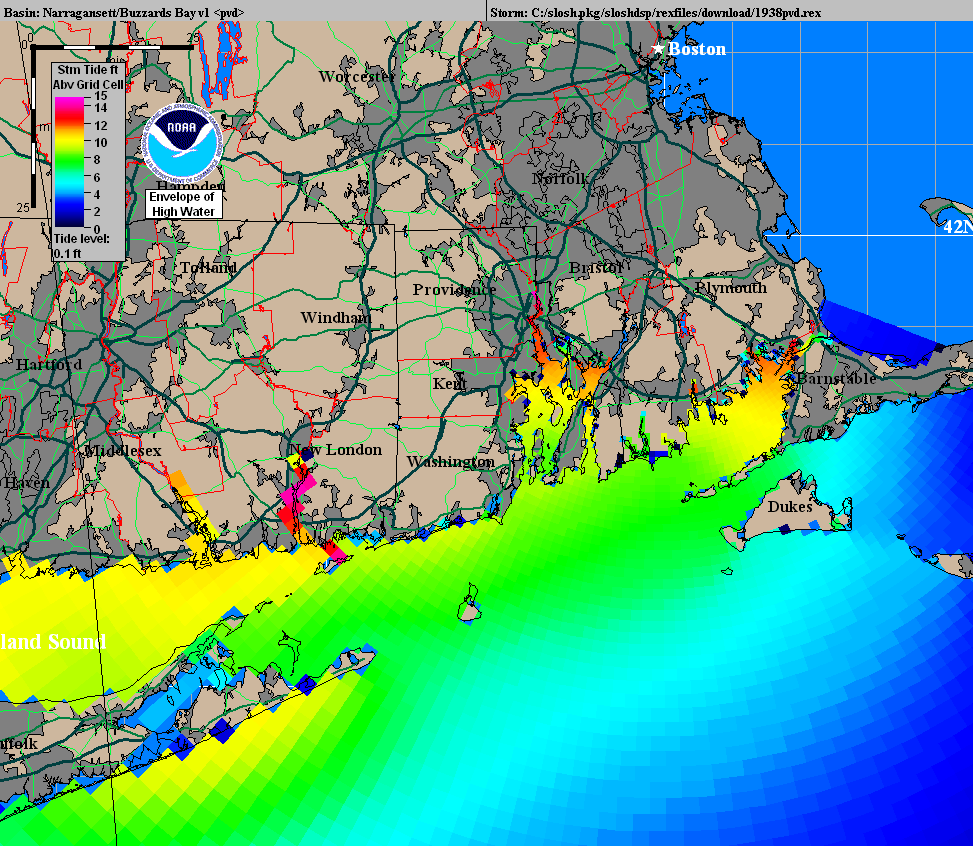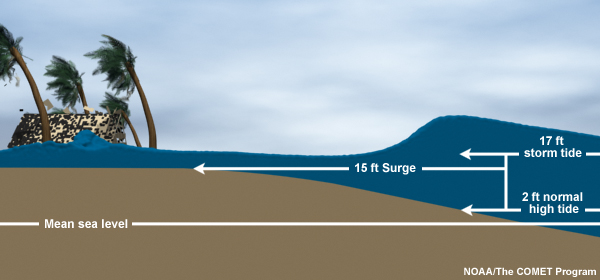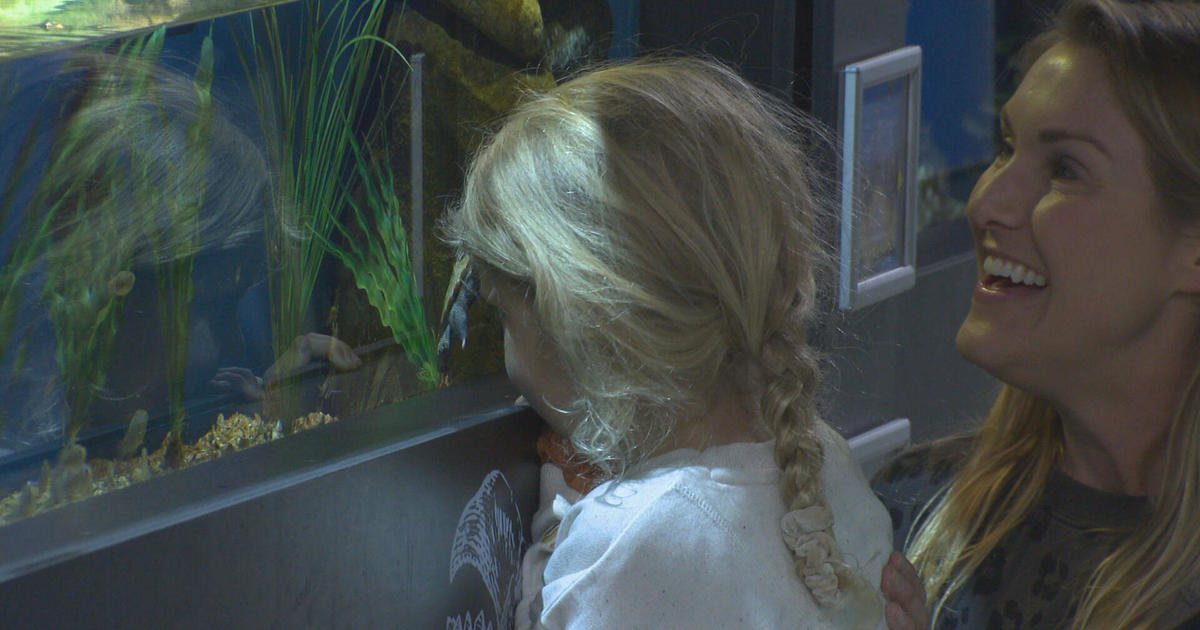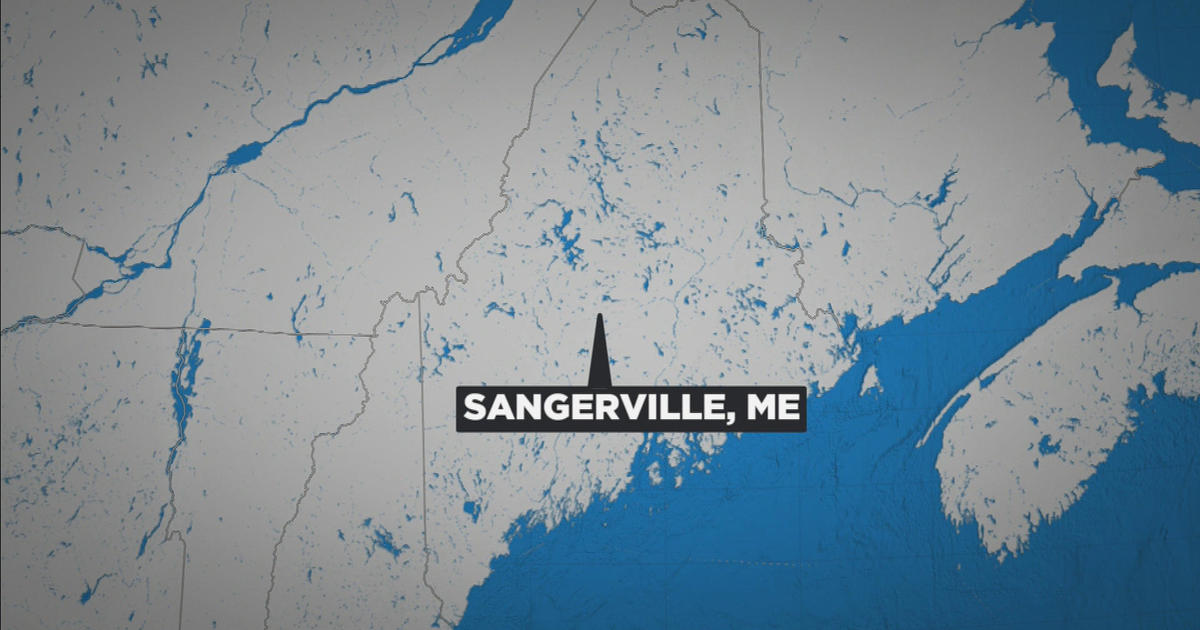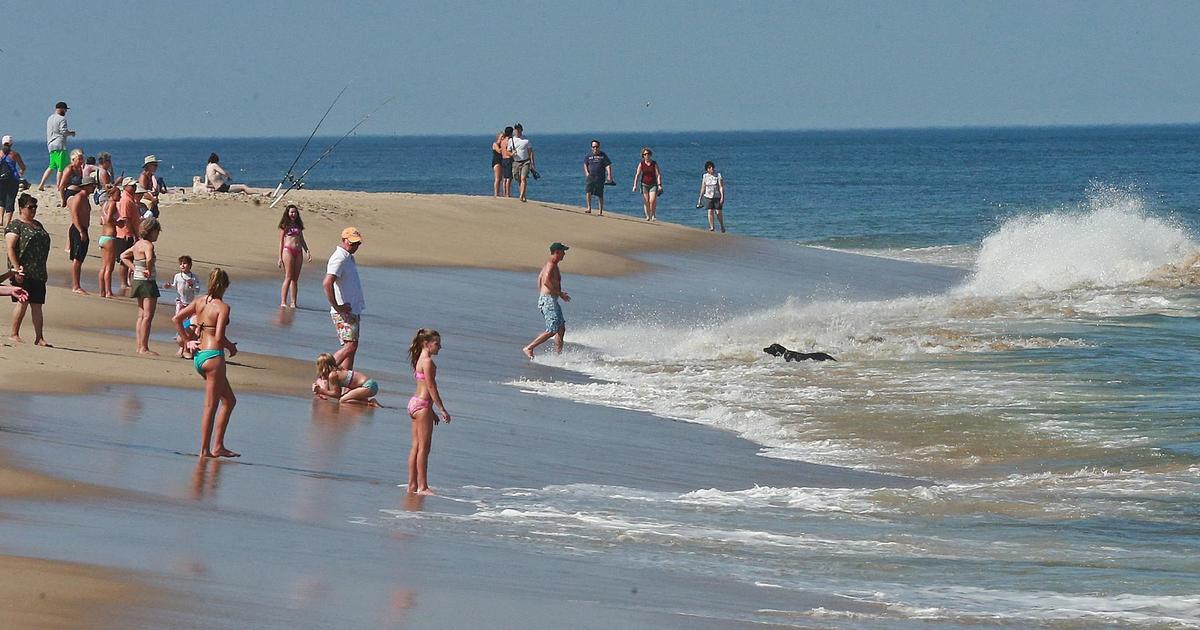Tropical Talk - Hurricane Outlooks Overblown?
Find Eric Fisher on Twitter and Facebook
There are 2 types of long-range outlooks that get both weather geeks and the general public talking more than any other - the winter forecast (too soon?) and hurricane season. Both can have a significant impact on lives, the economy, and travel. Both can destroy property. And both will play prominently on local and national TV. But should you be willing to place a large bet on their success?
Let's look at this from a pragmatic point of view. NOAA released their seasonal outlook on Thursday, calling for 6-11 named storms, 3-6 hurricanes, and 0-2 'Major' hurricanes. No doubt there are truly excellent meteorologists working for NOAA, Colorado State, or many private forecasting firms. They have a good handle on the factors that drive tropical activity from year to year (ENSO, sea surface temps, the Atlantic Multi-decadal oscillation, etc). Often times, they can hit their numbers and feel that they did a respectable job at the end of the season. But the argument can definitely be made that even if they're right, it's not useful to the everyday human being.
If I tell you 3-6 hurricanes will form this year, what's your next question going to be? "Will they hit us?" Or sometimes it rapidly escalates to "I have a vacation on Cape Cod in August...will there be any hurricanes around?" Now this is where it starts to get tricky. I could tell you that tropical Atlantic storms will be hard to come by this year (true), and that formation is most likely closer to the coast. I could say the odds favor the Gulf Coast (also true). Still, would this provide any help to you to plan for it? You'd probably just shrug your shoulders and go on vacation anyway without doing much else.
Take it a step further - the NOAA forecast calls for 0-2 'Major' (Category 3 or higher) hurricanes this season. Okay then. There's a pretty wide variety in outcomes between none forming (ho-hum), one or two forming but staying out to sea (interesting for ships), and two slamming into the East Coast costing billions and wrecking communities. We frankly have no skill yet to be able to say which of these scenarios will play out, even if the total number of such storms is accurate.
Then there's the old 'quiet season' headline that pops up every once in a while. This year's Atlantic outlook is below average. Well let's say we hit the extreme end of the outlook, get 11 named storms, 6 of them are hurricanes, 2 of them are Cat 3+, and 8 of them make landfall. Not so quiet. The season many meteorologists will point to is 1992, when the very 'quiet' season featured Hurricane Andrew. And just look at last year - could anyone tell you that a hurricane would pass just off the Nantucket coast on the 4th of July? Not a chance. In a 'quiet' season, that rainmaker cost the area millions of dollars by raining out a major holiday and altering plans.
So what to do? It's boring, it's used all the time, and it isn't sexy. But the 'it only takes one' moniker is all you need to be concerned with going into any tropical season. FEMA, MEMA and the Red Cross offer some great tips on getting ready and making sure you have the right kinds of plans and materials in place. Just learning more about your geography can help immensely (Does my area flood? How much would it take? Where should the mechanical features of my home be located? What is the evacuation route?). Many of us have little to no experience in preparing for a truly destructive hurricane in Massachusetts, because one hasn't made landfall here since 1991 (Bob). And it's been a LONG time since a worse-case scenario type storm blew through, like the The Great New England Hurricane of 1938. A storm like that, with today's population and development along the coast, would be something nearly unimaginable for many now living in the area.
Something To Look For This Season...
Storm surge graphics have become a priority for the National Hurricane Center...and you'll see a lot more of them in the years to come. Storm surge is a tough concept for many to grasp, as it usually brings water into places you've never seen water before and can't imagine it flowing up to. It also happens very quickly - one minute you're thinking this storm isn't that bad, then in comes the surge and a life threatening situation develops. Sandy was such a storm. Not remembered for much wind or rainfall, it devastated parts of the coast from New Jersey to Rhode Island with wave action and surge.
A simulated storm surge map from the 1938 hurricane, via the NHC's SLOSH model.
From the National Hurricane Center -
Surge Vulnerability Facts
- From 1990-2008, population density increased by 32% in Gulf coastal counties, 17% in Atlantic coastal counties, and 16% in Hawaii (U.S. Census Bureau 2010)
- Much of the United States' densely populated Atlantic and Gulf Coast coastlines lie less than 10 feet above mean sea level
- Over half of the Nation's economic productivity is located within coastal zones
- 72% of ports, 27% of major roads, and 9% of rail lines within the Gulf Coast region are at or below 4 ft elevation (CCSP, SAP 4-7)
- A storm surge of 23 ft has the ability to inundate 67% of interstates, 57% of arterials, almost half of rail miles, 29 airports, and virtually all ports in the Gulf Coast area (CCSP SAP 4-7)
Source: The National Hurricane Center
Final Thoughts...
To wrap this all up, let's focus on the message 'Respect the Weather.' It inspires awe in many, it helps or hurts business, and sometimes even dictates our mood. But we all need to remember that we are vulnerable to the whims of Mother Nature, and that preparation is the key to getting lives back together when weather is at its worst. When watches or warnings are issued - know that they exist to try and keep people safe. Same goes for evacuation orders. And just because something hasn't happened in your neighborhood before doesn't mean it won't happen in the future. Many scenarios play out over long periods of time, and eventually we'll have to put all this preparation to good use. Let's just hope it isn't this year!
